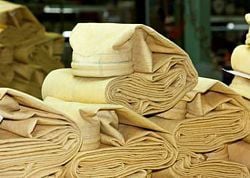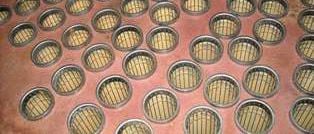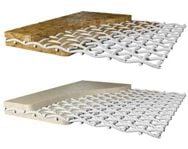High quality Valmet Filter Bags improve power plant filtration
Aug 19, 2015
Long experience and in-house production

"We know the process inside out, to the smallest detail, and our quality control is very tight," says Rui Coelho, Senior Sales Manager for Filtration at Valmet.
The Ovar facility also has a laboratory where a Valmet team tests strength and elongation, free shrinkage, and dust penetration, among others. There is also a pilot filter for felt development. Ovar is Valmet's competence center for dry filtration applications and is always staffed by our specialized support team.
Superior performance
Valmet Filter Bags provide superior performance and durability in demanding baghouse conditions. The high dimensional stability of the filter bags also offers power customers easier and faster assembly and disassembly of bags and support cages.

Valmet Filter Bags have been developed for baghouses through company-wide cooperation and are best-suited for medium- and high-temperature applications. These advanced filter bags allow power producers to fulfill their environmental responsibilities and still run their processes efficiently without any restrictions on production capacity.
It's all about the manufacturing…
"Every supplier uses the same polymer fibers for their filter bags. The difference between Valmet Filter Bags and those made by others lies in the way our bags are made and finished," Coelho explains.
The key element behind these bags' outstanding results is their structure. The felt is made of a selection of different temperature-resistant polymers attached to a scrim support fabric using needling technology. Different raw materials can be used alone or combined. The polymer used for each particular filtration process is chosen based on several parameters – such as temperature, gas composition, oxygen content, and humidity – to ensure trouble-free operation.
"The right scrim prevents elongation, and good needling prevents blocking," he continues. "In this kind of bag, it is also important that there is no difference in tension, so the seams need to be completely straight."
The bag's dimensional stability is very good, and the perfect fit of the bag collar ensures that there are no leaks and no dust buildup at the top of the cleaning chamber.
…and finishing the bag

By extending the cleaning cycles – by cleaning the bags for example every seven minutes instead of every five minutes – the bags will last longer than standard needle felts. Depending on the conditions, extended lifetimes can be expected.
Good results gained
Valmet Filter Bags have already proven their capabilities at various paper mills. Here's the view of one European customer: "[Valmet Filter Bags] are by far the best bags we have ever assembled. They fit perfectly and had exactly the same dimensions. After a few weeks of operations, there were no leaks, and thus no dust in the cleaning chamber."
"These bags have also proved to be good in the long run; they don't shrink, which means it's also easier to take the cage out of the bag."
Keen cooperation between Valmet specialists and customers ensures that bag development will continue to respond to the latest requirements for dust filtration in the future.
Contact your Valmet representative to find out how to get more dust out of your processes.